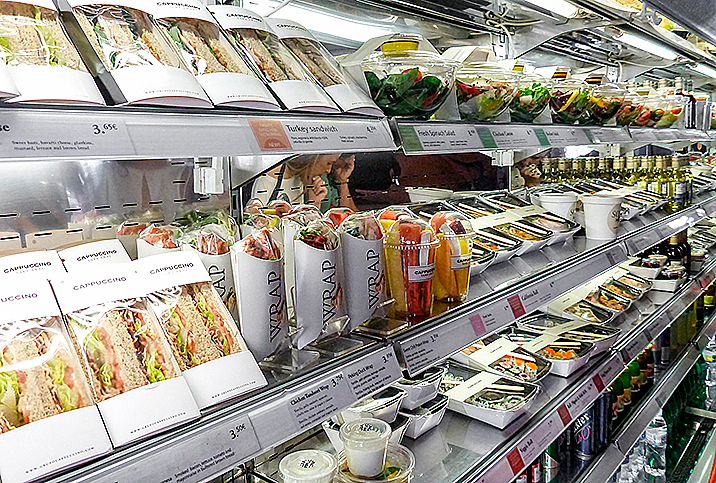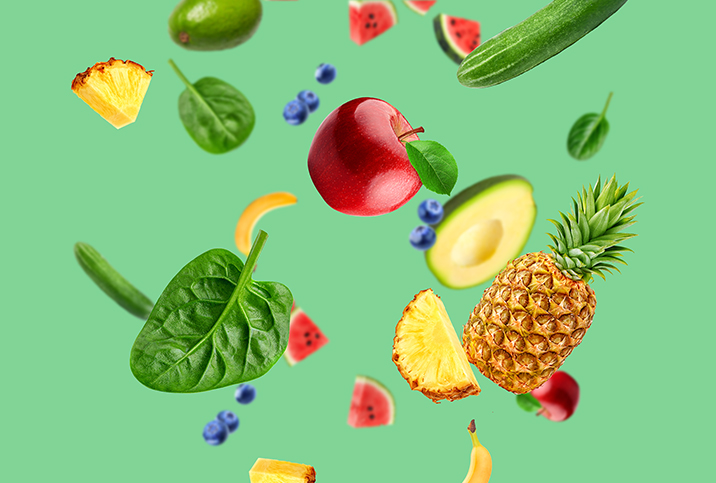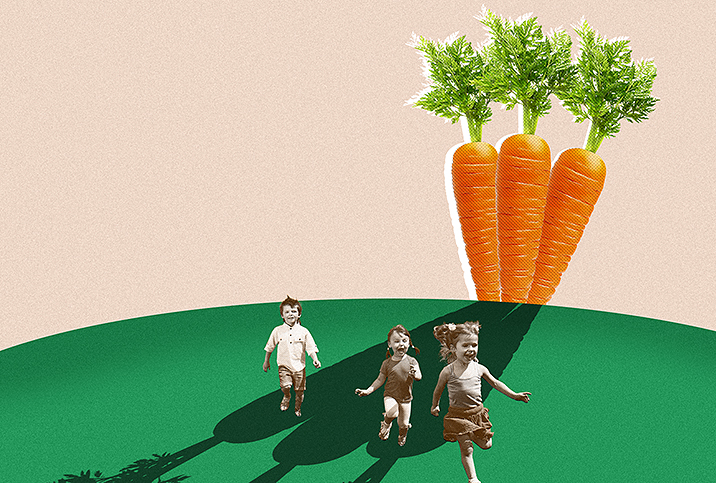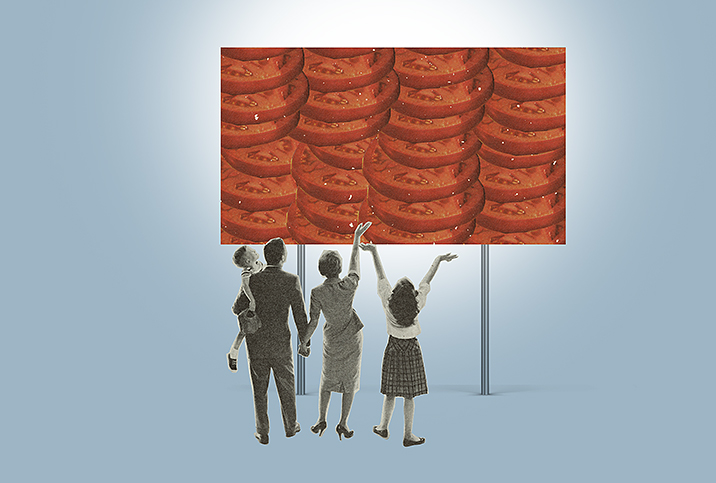Dietitians Dish on the Most Important Meal of the Day
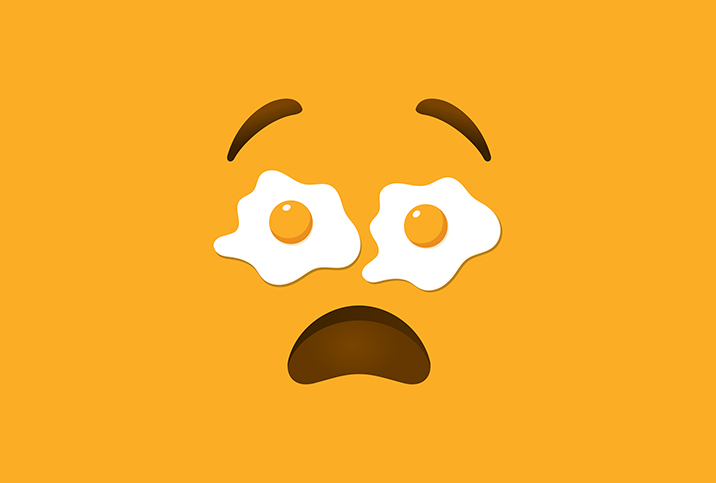
Although we know "breaking your fast" dates back to Neolithic times, the term "breakfast" wasn't coined until the 15th century. We also know James Caleb Jackson and John Harvey Kellogg are often credited with coming up with the slogan "Breakfast is the most important meal of the day" in the late 19th century to market their newly invented cereal, Corn Flakes, originally intended to be an anaphrodisiac.
However, Kellogg's isn't totally to blame for this messaging. Lobbyists for bacon and then eggs and then other products all hopped on the bandwagon. Since the Kellogg's slogan did not specify a particular product, it served as a catchall.
The slogan seems logical even now. After all, the way you start your morning can often set the tone for the rest of your day. The only problem is, in terms of what you should eat and when, advice is mixed.
The important parts
It turns out the cliché is quite true. A balanced breakfast can help you jump-start your day.
"It's not a joke to say breakfast is the most important meal of the day," said Diane Krol, a registered and licensed dietitian at New England Dairy in Boston. "When else in our lives do we ever go 10 to 12 hours without eating in a 24-hour period? When we're awake, we're usually chomping down on something every two to three hours."
Jessica DeGore, R.D., a nutrition consultant based in Pittsburgh, agreed.
"Don't skip breakfast. You wake up low on fuel and dehydrated—give your body what it needs," she said.
A healthy breakfast can help prepare you for the day, while skipping it, even when you're not hungry, has been linked to decreased nutrition, vitamin and mineral levels.
Timing matters
Some people enjoy waking up and working out on an empty stomach. Others may turn to coffee first thing, while some opt for breakfast right away. No matter your choice, dietary experts recommended following some basic guidelines.
"I generally recommend eating breakfast within an hour of waking," DeGore said. "Your body needs fuel to start its day, and eating will help provide energy and adequate hydration to conquer whatever lies ahead."
"Usually the best time to have your first meal of the day is within the first hour of rising," agreed Larissa Nicole, founder and CEO of Larissa Nicole Fitness in Toronto. "Having even a small meal within the first hour of waking helps to promote optimal digestion and metabolism."
But if you don't wake up hungry, is it OK to wait to eat breakfast?
"Listen to your body," Krol advised. "Eating not long after waking can help jump-start your metabolism. Some wake up ravenous, while others need time to ease into their morning routines."
Bottom line? Eating within the first hour of waking up is optimal for your health and metabolism. But eating breakfast anytime—even two hours after your head left the pillow—is still better than skipping it altogether.
The best breakfast meals
While specific foods may vary depending on your diet and preferences, there are tips to building the perfect breakfast plate.
"I always recommend a carbohydrate and protein source paired," DeGore said. "Carbs are like the gas in our car—we need that fuel. Protein will help keep the body full and satisfied. I don't recommend a specific calorie limit or macronutrient breakdown."
An example might be a slice of toast topped with avocado and an egg for an extra protein pack, oatmeal topped with fruit and peanut butter, or tofu scramble with potatoes or toast.
The best breakfast drinks
Getting your fluids right away is important first thing in the morning, too, particularly since you've spent eight hours or more not drinking anything.
"Hydrating with water, 100 percent fruit juice or a smoothie is a great way to get in nutrients and avoid starting the day off dehydrated, which can affect nutrient absorption, hunger and energy levels throughout the day," said Sarah Schlichter, R.D.N., from Frederick, Maryland.
We haven't mentioned coffee yet for a reason. It's a divisive subject in the nutritional world. While some studies tout its healthful properties, others critique its role in spiking your blood sugar. Many people are reluctant to give up their morning coffee. But should you?
"I always encourage clients to start their day with a glass of whatever, and to limit coffee to about two to three cups per day," DeGore said.
Fitting a healthy breakfast into a busy schedule
Even if you feel like every morning is nothing more than crawling out of bed, stumbling into the shower, dressing and getting out the door as fast as possible, it's still possible to squeeze a balanced breakfast into your routine.
"The best news is that anything can be eaten for breakfast and it doesn't have to be fancy or time-consuming," Krol said. "It could be as simple as making last night's leftovers the centerpiece of your morning omelet."
Krol recommended overnight oats—which, as the name suggests, you can make in advance—or portable options such as a banana and probiotic-rich yogurt, which you can grab as you head out the door.
You may think smoothies are a healthy way to get your breakfast in quickly, particularly since you can freeze the ingredients ahead of time and blend them up in the morning. But smoothies may also leave you feeling hungry unless they're well-balanced.
"Most of us like to chew our food and not drink it, so I typically advise consuming solid food over liquids," DeGore explained. "Protein shakes are typically lacking in carbohydrates, which will leave the body low on its best type of fuel [and] can lead to overeating later in the day. If you want to have a smoothie, just make sure it includes a carb, protein and healthy fat. For instance, a banana with dairy milk and peanut butter. Add in high-fiber extras like avocado, greens or frozen cauliflower to give the smoothie lasting fullness."
Whether you eat cereal or scrambles, just eat. Slogan or not, breakfast is still a pretty darn important meal for your day.












